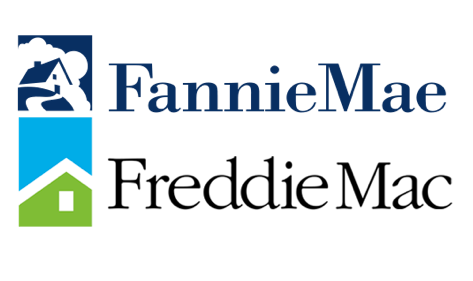What Are Fannie Mae and Freddie Mac—And Why Should Homebuyers Care?
If you're buying your first home, you’ve probably heard your lender mention Fannie Mae or Freddie Mac. But who are they? Are they people? Banks? Government agencies? Let’s break it down simply because understanding Fannie and Freddie can help you feel more confident in your mortgage decisions.
5/28/20252 min read


Who Are Fannie Mae and Freddie Mac?
Fannie Mae, officially known as the Federal National Mortgage Association (FNMC) , and Freddie Mac, or the Federal Home Loan Mortgage Corporation (FMCC), are classified as government-sponsored enterprises (GSEs). Established by Congress way before you were born, both organizations serve crucial roles in ensuring the mortgage market remains stable, affordable, and accessible for the average consumer.
The primary purpose of Fannie Mae and Freddie Mac is to expand the secondary mortgage market. They accomplish this by purchasing mortgage loans from lenders, thereby providing the lenders with liquidity, enabling them to offer more loans to prospective homeowners. This cycle contributes to a healthier housing market and promotes homeownership across various demographics.
How Do They Help You as a Homebuyer?
Here's how it works:
Your lender gives you a mortgage to buy a home.
Fannie or Freddie buys that mortgage from your lender.
This gives your lender the money to help another homebuyer—and keeps the mortgage system moving.
Without Fannie and Freddie, lenders might run out of money or only lend to people with perfect credit.
Why Should You Care?
Fannie and Freddie help ensure:
Lower interest rates on your mortgage.
More loan options with flexible terms.
Standardized lending rules—so you're treated fairly no matter where you live.
In short, they make homeownership more affordable and accessible, especially for first-time buyers.
What Happens If They Go Away?
Fannie and Freddie have been in a government conservatorship since the 2008 financial crisis. If they were ever fully privatized, mortgage rates might go up a bit, and some lower-income or first-time buyers could have fewer affordable loan options.
That’s why many housing advocates fight to keep them focused on affordable housing and first-time buyers.
If privatization comes with an explicit government guarantee or backstop, the disruption might be minimal—almost symbolic. Markets would continue as usual, but Fannie and Freddie would operate with more transparency and capital discipline.
You don’t need to become a mortgage expert overnight—but knowing how Fannie Mae and Freddie Mac work can help you better understand your loan, ask smarter questions, and feel confident on your path to owning a home.
They may not be famous, but in the background, they’re working to help make your American dream possible.
